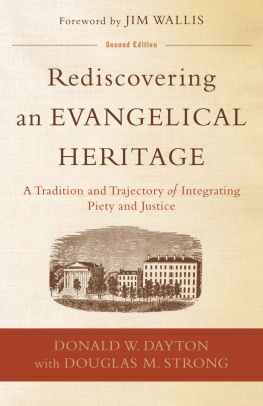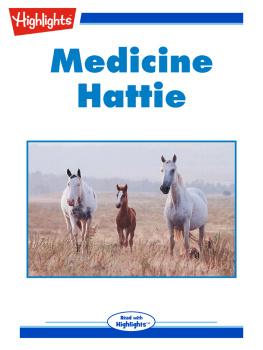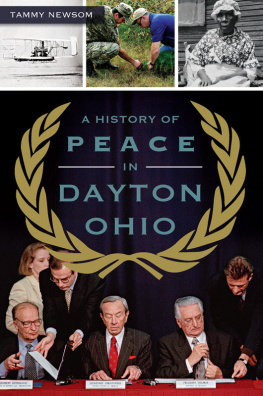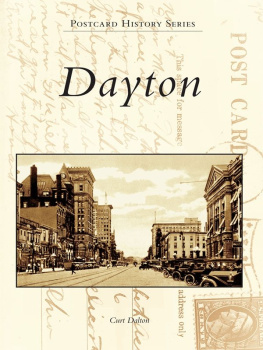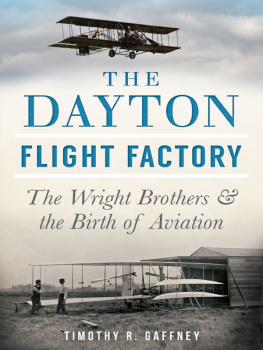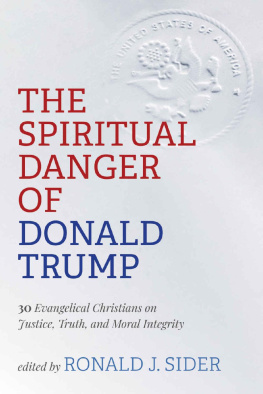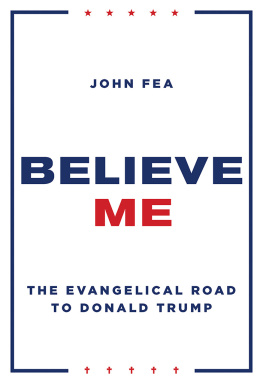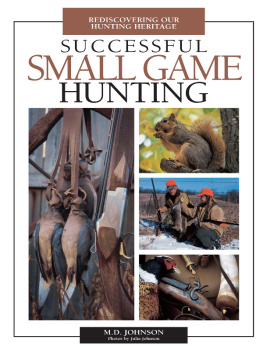Donald W. Dayton - Rediscovering an Evangelical Heritage
Here you can read online Donald W. Dayton - Rediscovering an Evangelical Heritage full text of the book (entire story) in english for free. Download pdf and epub, get meaning, cover and reviews about this ebook. year: 2014, publisher: Baker Publishing Group, genre: Religion. Description of the work, (preface) as well as reviews are available. Best literature library LitArk.com created for fans of good reading and offers a wide selection of genres:
Romance novel
Science fiction
Adventure
Detective
Science
History
Home and family
Prose
Art
Politics
Computer
Non-fiction
Religion
Business
Children
Humor
Choose a favorite category and find really read worthwhile books. Enjoy immersion in the world of imagination, feel the emotions of the characters or learn something new for yourself, make an fascinating discovery.
- Book:Rediscovering an Evangelical Heritage
- Author:
- Publisher:Baker Publishing Group
- Genre:
- Year:2014
- Rating:4 / 5
- Favourites:Add to favourites
- Your mark:
- 80
- 1
- 2
- 3
- 4
- 5
Rediscovering an Evangelical Heritage: summary, description and annotation
We offer to read an annotation, description, summary or preface (depends on what the author of the book "Rediscovering an Evangelical Heritage" wrote himself). If you haven't found the necessary information about the book — write in the comments, we will try to find it.
Rediscovering an Evangelical Heritage — read online for free the complete book (whole text) full work
Below is the text of the book, divided by pages. System saving the place of the last page read, allows you to conveniently read the book "Rediscovering an Evangelical Heritage" online for free, without having to search again every time where you left off. Put a bookmark, and you can go to the page where you finished reading at any time.
Font size:
Interval:
Bookmark:

2014 by Donald W. Dayton
Published by Baker Academic
a division of Baker Publishing Group
P.O. Box 6287, Grand Rapids, MI 49516-6287
www . bakeracademic . com
Ebook edition created 2014
All rights reserved. No part of this publication may be reproduced, stored in a retrieval system, or transmitted in any form or by any meansfor example, electronic, photocopy, recordingwithout the prior written permission of the publisher. The only exception is brief quotations in printed reviews.
Library of Congress Cataloging-in-Publication Data is on file at the Library of Congress, Washington, DC.
ISBN 978-1-4412-4643-1
Unless otherwise indicated, Scripture quotations are from the King James Version of the Bible.
Scripture quotations labeled NRSV are from the New Revised Standard Version of the Bible, copyright 1989, by the Division of Christian Education of the National Council of the Churches of Christ in the United States of America. Used by permission. All rights reserved.
Illustration credits by page number: : E. A. Girvin, Phineas F. Bresee: A Prince in Israel: A Biography (Kansas City, MO: Pentecostal Nazarene Publishing House, 1916), frontispiece.
Cover
Title Page
Copyright Page
Acknowledgment
A Note about Editions of This Book
Foreword by Jim Wallis
Introduction to the Second Edition (2014):
A Tradition of Integrated Faith
by Douglas M. Strong
Preface to the Reprint of the First Edition (1988)
by Donald W. Dayton
Prologue to the First Edition (1976):
On Coming to Maturity in an Evangelical College in the 1960s
by Donald W. Dayton
1. Jonathan Blanchard:
The Radical Founder of Wheaton College
2. Reform in the Life and Thought of Evangelist
Charles G. Finney
3. Theodore Weld:
Evangelical Reformer
5. Civil Disobedience and the Oberlin-Wellington Rescue Case
6. Arthur and Lewis Tappan:
The Businessman as Reformer
7. Orange Scott, Luther Lee, and the Wesleyan Methodists
8. The Evangelical Roots of Feminism
9. Anointed to Preach the Gospel to the Poor
10. Whatever Happened to Evangelicalism?
Epilogue to the First Edition (1976):
Reflections on Some Unresolved Issues
by Donald W. Dayton
Conclusion to the Second Edition (2014):
A Trajectory of Integrated Faith
by Douglas M. Strong
Bibliography
Notes
Back Cover
T hanks to the editors of Post American (now Sojourners ) for permission to use material that first appeared in their pages in different form as a ten-part series titled Recovering a Heritage, published from JuneJuly 1974 through May 1975.
A s of 2014, there are three extant versions of this book. The first edition, titled Discovering an Evangelical Heritage , was published by Harper & Row in 1976. A reprint of that edition, under the same name, and unaltered except for the addition of a new preface by the author, Donald Dayton, was published by Hendrickson in 1988. This current publication, the second edition, has the slightly altered name of Rediscovering an Evangelical Tradition . In addition to the original text by Donald Dayton, which has been lightly edited, this second edition includes a new introduction, conclusion, and five chapter postscripts written by Douglas Strong, along with fresh illustrations and a new foreword by Jim Wallis. The second edition was published by Baker Academic in 2014.
B Y J IM W ALLIS
W hen Don Dayton wrote a series of essays titled Recovering a Heritage for Sojourners magazine (then called Post American ), he was responding to a young evangelical movement that at the time seemed radical, but was in fact a return to an orthodoxy that had been lost. These essays eventually became his seminal book, Discovering an Evangelical Heritage . In it Dayton masterfully recounted the work of revivalist minister Charles G. Finney, reformists Theodore Weld and the Grimke sisters, and the men and women of Oberlin Colony, and he reminded readers of the history of the evangelical movement in America as a call back to our best spiritual values. I had never heard about an evangelical movement that was once committed to social justice and even helped to change America in its time.
In Discovering an Evangelical Heritage Dayton showed that many evangelical Christians in the nineteenth century didnt distinguish between a private faith focused exclusively on personal salvation and radical concern for the poor and oppressed. Personal piety was largely connected to works that went beyond charity to social reform and justice. It wasnt an evangelical faith concerned only about heaven and the life hereafter but about bringing the kingdom of God into this world . As a result, evangelicals were heavily involved in the abolition of slavery, fighting for the poor, and womens rights. Evangelical revivals called people not only to personal atonement but to putting faith into action. At their altar calls people would come to Christ and immediately sign up for the anti-slavery campaign!
Since its founding, Sojourners has articulated the biblical call to social justice. For many of us who grew up in the post-war evangelical American churches where faith had been privatized, Don Dayton helped us understand that our longing to embrace the world was grounded in both Scripture and history. He revealed the public evangelical faith that is our great inheritance. And that revelation even helped to renew our faith personally. Daytons voice in our magazine was a dramatic historical demonstration that our evangelical heritage involved a deeply personal faith that expressed itself in a commitment to real changenot just in our hearts but in the world that God so loved. The kingdom of God is the central message of the New Testament, intended to change the world and us with it.
In Rediscovering an Evangelical Heritage, an expansion of the original book, Don Dayton and Doug Strong show it is not heretical or communist to talk about social justice in the church. On the contrary, a personal faith that issues itself in a fundamental commitment to social justice is the very stuff of orthodoxy and is deeply embedded in American history. Dayton showed us young sojourners that we werent the first people to connect faith to justice, but that integrating both goes back into the heart of church history. Separating personal faith from public expression is a rather recent American heresy. That was humbling, reassuring, and grounding for us as well.
The good news now is that a new generation of evangelical Christians is hungry to do exactly what these earlier reformers were doing. So I would urge you to read this update of a classic book, and ask how we can put our evangelical faith into action that makes its own history.
Jim Wallis
July 2014
A Tradition of Integrated Faith
B Y D OUGLAS M. S TRONG
T hree incidents illustrate the relevance of this books messagea relevance that comes from its forty-year reputation of drawing attention to an overlooked interpretation of the evangelical movement and from its enduring capacity to offer a historical foundation for the hopes and longings of American Christians. The first incident comes from 1844; the second from 1975; and the third from a week ago.
In the 1840s, Robert Baird, a Pennsylvanian residing in Switzerland, wrote the earliest comprehensive text describing American religion. Baird published his pioneering work in two places: Glasgow and New York. The Scottish edition assisted the British and Europeans to grasp the seemingly odd faith perspectives of their cousins across the ocean, while the American edition helped Bairds countrymen and women understand and interpret their own religious milieu. In the verbose style typical of the era, Bairds title Religion in America: Or, An Account of the Origin, Relation to the State, and Present Condition of the Evangelical Churches in the United States; with Notices of the Unevangelical Denominations revealed one of the central arguments of his writing: according to Baird, American churches could be described most clearly by a category he called evangelical. The 1844 printing of Bairds book, then, provides a convenient chronological point identifying when most nineteenth-century American Christians perceived themselves collectively as evangelicals.
Font size:
Interval:
Bookmark:
Similar books «Rediscovering an Evangelical Heritage»
Look at similar books to Rediscovering an Evangelical Heritage. We have selected literature similar in name and meaning in the hope of providing readers with more options to find new, interesting, not yet read works.
Discussion, reviews of the book Rediscovering an Evangelical Heritage and just readers' own opinions. Leave your comments, write what you think about the work, its meaning or the main characters. Specify what exactly you liked and what you didn't like, and why you think so.

